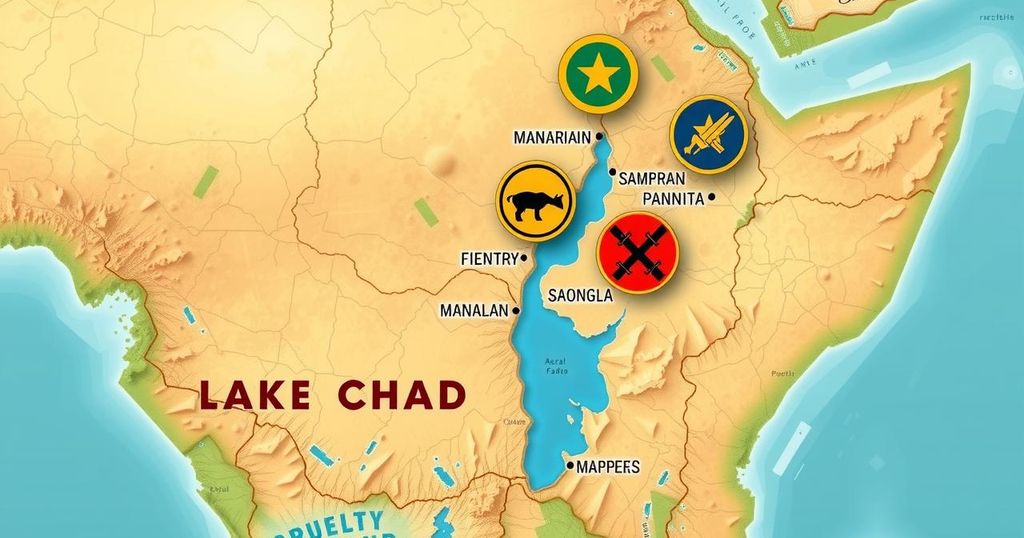Niger’s Junta Withdraws from MNJTF Amidst Regional Turmoil
Niger’s ruling junta has withdrawn from the MNJTF, a regional force combating Islamist militants, aiming to enhance oil site security. This move follows a recent leadership change and a break from Ecowas post-coup. The junta’s new alliances signal a shift in West Africa’s geopolitical landscape, with potential implications for trade and regional stability.
Niger’s ruling junta has officially exited the Multinational Joint Task Force (MNJTF), which addresses armed Islamist threats in the Lake Chad region. The announcement was made through state television, clarifying that this decision aims to bolster security around oil sites, although further specifics were omitted. The MNJTF, created in 2015 by Cameroon, Chad, Niger, and Nigeria, was instrumental in combating the rise of jihadist attacks in the area, peaking at 10,000 troops involved in operations against groups like Boko Haram. However, analysts contend that the effectiveness of the force has been compromised by poor coordination and equipment shortcomings.
Ulf Laessing, director of the Sahel program at the Konrad Adenauer Foundation, remarked that the force’s decline represents a setback for local communities reliant on military support. He stated, “The force was never that effective,” and its weakening is detrimental to fishermen and farmers who seek stability to conduct their livelihoods.
This withdrawal from MNJTF occurred shortly after Abdourahmane Tiani, the junta’s leader, was inaugurated under a new charter that suspends constitutional governance and dissolves all political parties. Additionally, Niger has distanced itself from the Economic Community of West African States (Ecowas), following the sanctions imposed in response to the coup that deposed President Mohamed Bazoum in July 2023. Within two months post-coup, Niger allied with the new Alliance of Sahel States (AES), alongside Burkina Faso and Mali, both of which have similarly experienced military coups since 2020.
The AES has taken significant steps, such as introducing new biometric passports and recently enacting a 0.5% levy on imports from Ecowas countries, marking a departure from the longstanding tradition of free trade in the western Sahel. Ikemesit Effiong, of SBM Intelligence, pointed out that this levy could compel Ecowas to adopt a more assertive approach in negotiations with AES, given their commitment to maintaining open trade.
The consequences of Niger’s withdrawal from the MNJTF on existing agreements with Nigeria remain uncertain. The two nations share a historically rich 1,000-mile border, yet tensions have emerged due to Ecowas’s insistence on restoring democratic governance quickly. Effiong noted that Niger is strategically reassessing its military and economic alliances, particularly after expelling French troops in 2023. He commented, “Niger has been pulling out of all its main regional bilateral and multilateral commitments, much of which it sees as western influenced or inspired.”
Overall, Niger’s departure from the MNJTF highlights a significant shift in the geopolitical landscape of West Africa, as military alliances and relationships fluctuate in response to recent political upheavals.
Niger’s withdrawal from the MNJTF signifies a pivotal change in the region’s security dynamics, as the junta seeks to strengthen its focus on domestic oil security while distancing itself from previous alliances. The decision follows its leader’s recent election under a new political framework and the country’s growing disengagement from Ecowas in the wake of international sanctions. This transition towards the AES and the new import levies could reshape trade and diplomatic relations across West Africa.
Original Source: www.theguardian.com








Post Comment